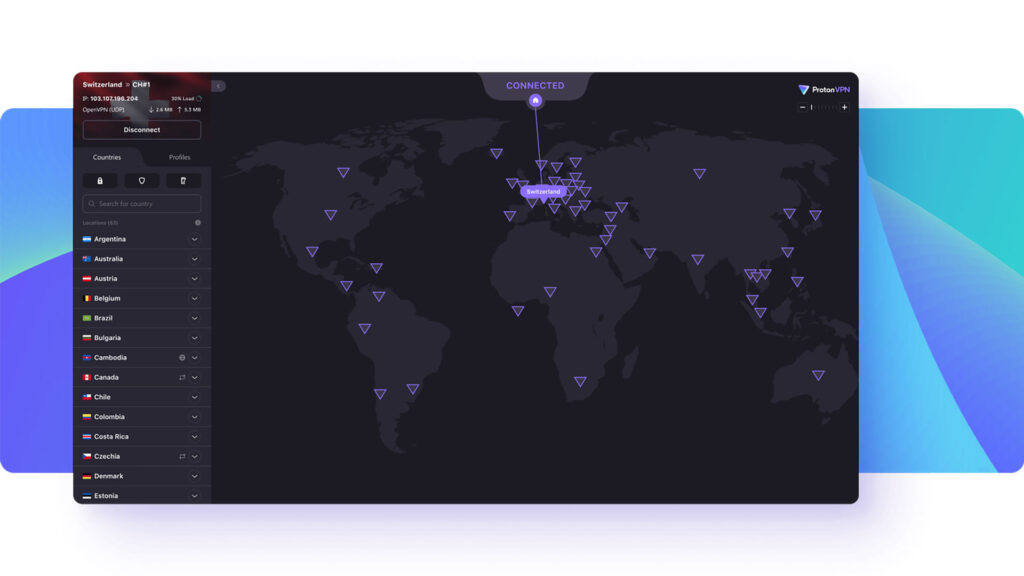Proton VPN announces the withdrawal of its servers from India. The VPN service denounces a law that requires a very long storage of a lot of personal data.
After ExpressVPN, it’s Proton’s turn to pack up. The Swiss company that provides a virtual private network (VPN) service has announced that it is leaving India after New Delhi’s decision to impose increased retention of the data of Internet users using this type of service. In Proton’s eyes, this law threatens its privacy commitments.
The role of the VPN is to pass the Internet connection of the Internet user through one or more intermediate crossing points before going to the desired site. In short, it acts as a screen. Under these conditions, the final site cannot see the real origin of the Internet user: it will only see the location of the last waypoint used, which may be in such and such a country.
It is therefore a question of hiding its true geographical origin. This has an interest in circumventing certain restrictions (accessing an American site which blocks European access due to the GDPR or consulting another version of an SVOD service catalog). VPN providers also often cite defending privacy against all sorts of threats.
Proton VPN uses a process to remain accessible
However, Proton ensures not to leave the Indian market: the company withdraws its servers from the country – like ExpressVPN – but continues to market its offers to Internet users. To do this, it came up with a solution consisting of passing Internet users’ connections through servers based in Singapore, while keeping an Indian IP address.
This architecture allows maintain an Indian IP address and access the internet securely, but from servers physically located outside the jurisdiction of the Indian government and therefore not subject to logging rules “, comments Proton in a press release issued on September 22.
Indian law requires storage of user data for five years. This includes customers’ names, their IP address (i.e. the license plate of their device on the network), their contact details, timestamps of certain actions as well as “usage patterns”. Excessive conservations in the eyes of Proton.

Proton claims to have a no logging policy. In this context, the company ensures that it does not record the websites visited, the IP address of the user, the duration of the sessions, the traffic, the content of the communications or the location of its customers. Some data is kept when creating the account (name, pseudonym, email, password).
However, Proton is not in a position to completely escape the law and in certain cases has to cooperate with the authorities. This reality was remembered by many Internet users when the service had to transmit IP addresses to the police in 2021, leading to controversy and a change of discourse on its part. But, in Proton’s eyes, he did his part.
Proton VPN is one of the services offered by Proton. There are others, each with the promise of protecting the privacy of Internet users as much as possible. Three other solutions exist: cloud storage (Proton Drive), messaging (Proton Mail) and an agenda (Proton Calendar).


